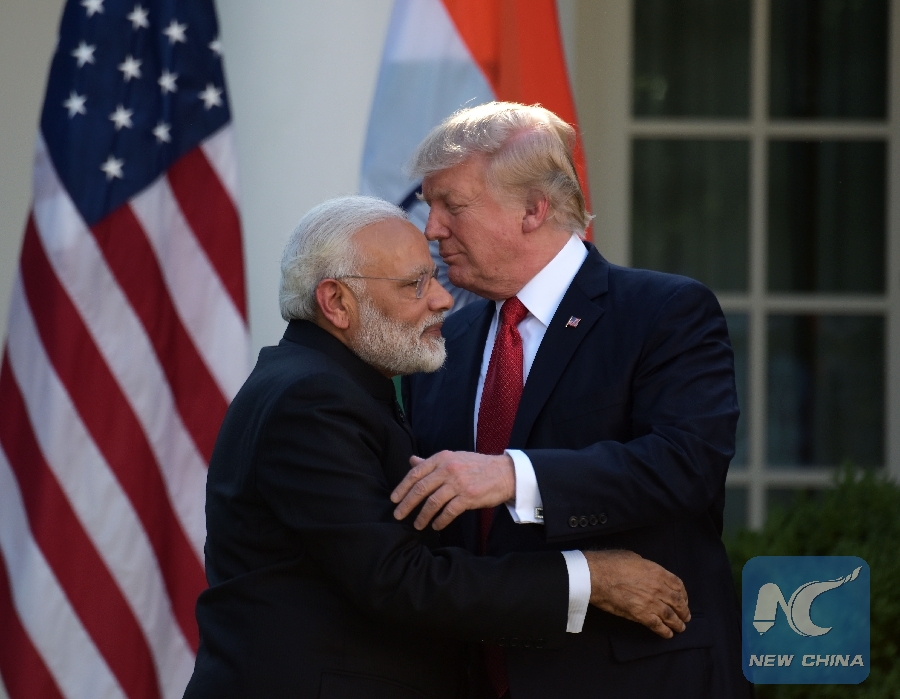
File Photo: U.S. President Donald Trump (R) and Indian Prime Minister Narendra Modi hug after giving joint statements at the White House in Washington D.C., the United States, June 26, 2017. (Xinhua/Yin Bogu)
WASHINGTON, March 4 (Xinhua) -- The United States intends to move India and Turkey out of a program under which a group of developing countries receive preferential trade treatment, the U.S. Trade Representative's (USTR) office announced Monday.
According to a statement issued by the USTR's office, India's termination from the Generalized System of Preferences (GSP) program "follows its failure to provide the United States with assurances that it will provide equitable and reasonable access to its markets in numerous sectors."
Turkey is kicked out because "it is sufficiently economically developed and should no longer benefit from preferential market access to the United States market," the statement said.
In a letter to congressional leaders, U.S. President Donald Trump wrote, "I am providing notice of my intent to terminate the designation of India as a beneficiary developing country under the Generalized System of Preferences (GSP) program."
The step is taken because "I have determined that India has not assured the United States that it will provide equitable and reasonable access to the markets of India," Trump told House Speaker Nancy Pelosi and President of the Senate Charles Grassley in the letter, citing provisions in the Trade Act of 1974 that established the GSP.
As of 2017, some 5.6 billion U.S. dollars' worth of Indian imports enjoys duty-free status in accordance with the GSP, making the country the biggest beneficiary of the program, data from the USTR's office showed.
Trump, who has complained about U.S. trade deficit with India, issued a presidential proclamation last year removing 50 items from a list of Indian products subject to the GSP, effective from Nov. 1, 2018.
Washington has a 21-billion-dollar red ink in trade balance with New Delhi in 2018, according to statistics provided by the U.S. Census Bureau.
As for Turkey, the USTR's office cited "an increase in Gross National Income (GNI) per capita, declining poverty rates, and export diversification" as evidence that Ankara has achieved a "higher level of economic development."
"By statute, these changes may not take effect until at least 60 days after the notifications to Congress and the governments of India and Turkey, and will be enacted by a Presidential Proclamation," the USTR's office said in the statement.

